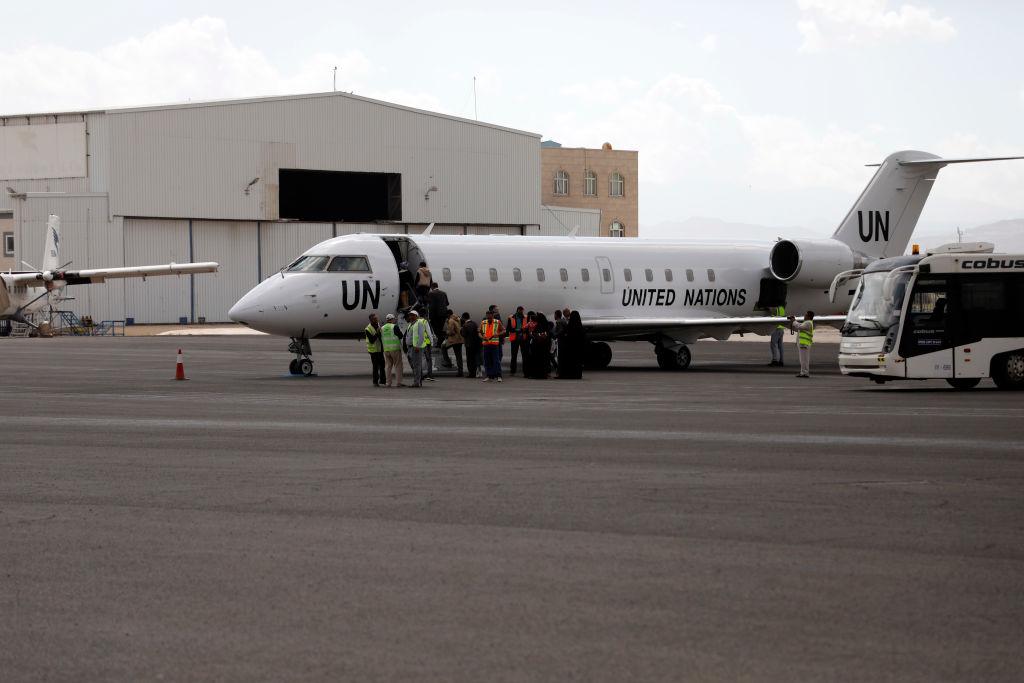
The beat
Artificial intelligence used to fight financial crime
British company Quantexta has been using artificial intelligence to predict financial crime before it occurs. It uses data and AI to provide clients with their customers’ patterns of behaviour and identify those who might be involved in fraud. The company is also exploring other applications for its technology in identifying or preventing crime.
Call to view human trafficking through national security lens
The broad security threat posed by human trafficking is the topic of a report in Foreign Policy, which argues the national security community must pay more attention to the issue. Research suggests that human trafficking is a ‘threat multiplier’, because it supports terrorist and armed groups, finances criminal organisations, enables abusive regimes and promotes insecurity.
Panama lifts firearms import ban
The number of weapons in Panama is likely to increase after the government ended an almost decade-long ban on the importation of firearms. The reasoning behind the decision is unclear, especially in light of the country’s increasing murder rate. Even while the ban was in place, weapons often flowed from Panama into the rest of Latin America and the Caribbean, driving crime and violence in the region.
CT scan
Mali launches new counterterrorism operation
Mali’s president has authorised a new counterterrorism operation as part of a broader effort by France, Mali, Burkina Faso, Niger, Chad and Mauritania to reduce violence in the Sahel region. Operation Maliko will focus on two theatres of operation and will be headquartered in the towns of Gao and Sévaré. Commanders have been empowered to impose restrictions on movement and employ military and paramilitary forces to target extremists in their jurisdictions.
US–ASEAN cooperation in the Philippines
A conference hosted by the US embassy and the Philippines Department of Justice in Cebu City has highlighted the growing cooperation between the US and ASEAN on counterterrorism. Philippines Prosecutor General Benedicto Malcontento said the conference discussed a wide range of topics, including the use of digital forensics to solve terrorism cases.
Greek counterterrorism police find weapons in stolen car
When police stopped a stolen car in an Athens suburb, they found weapons believed to have been used in a series of bank robberies in northern and western Greece. Counterterrorism police arrested three suspects. One had previously been held for her association with Panagiota Roupa, the leader of the Revolutionary Struggle guerrilla group.
Checkpoint
Ugandan and Rwandan leaders discuss border tensions
At a meeting in Angola, the presidents of Uganda and Rwanda agreed to hold talks at a border post to resolve issues between their countries. Rwanda closed its border with Uganda in February 2019 after earlier advising its citizens not to travel there over concerns of arbitrary arrests. Tensions flared earlier this year when a Ugandan was reported to have been shot dead by Rwandan security forces inside Rwanda.
Eight arrested in people-smuggling attempt
Eight people were arrested after a boat carrying 19 migrants, including four children, from Greece to Italy was stopped as part of an international effort to halt people smuggling by criminal gangs. Operation Odyssey is a joint initiative led by the Hellenic Police and the Hellenic Coast Guard and is supported by the UK’s National Crime Agency and European experts on people smuggling. It forms part of Europol’s EMPACT project, which in part targets those who facilitate illegal immigration.
Thailand introduces new biometric system
Thailand’s Immigration Bureau says biometric border control technology has helped it detect people breaching visas, those on national blacklists and some who’ve been arrested previously for fraud attempts. German biometric company Dermalog says its system identifies travellers by matching their fingerprints, faces and eyes. The technology has so far been deployed in 16 countries and is used by more than 240 government agencies in 90 countries.
First responder
Thai doctors successfully trial HIV and flu drugs on coronavirus patient
Thailand’s Ministry of Public Health has announced that doctors in Bangkok have seen positive results after treating a Chinese coronavirus patient with a combination of flu and HIV drugs. Doctors said the patient, who had shown no signs of recovery in the 10 days since being identified as a carrier, improved rapidly and tested negative for the virus 48 hours after receiving the new treatment. The ministry has identified 25 coronavirus cases in Thailand to date.
Yemeni patients take first UN humanitarian flight to Jordan
The first patients on a ‘medical air bridge’ have flown out of the beleaguered Yemeni capital of Sanaa to receive specialised medical assistance in Jordan. People requiring cancer treatment, organ transplants or reconstructive surgery were the first of 32,000 Yemenis registered on the country’s medical evacuation list to be transported after Sanaa airport was blockaded by Houthi militia in 2016.
Mexico urged to increase protection of migrant children
Nearly 2,200 migrants and asylum seekers, including 700 children, are stranded at Mexico’s southern border city of Matamoros while awaiting consideration of their asylum applications under US Migrant Protection Protocols. UNICEF has responded by providing health resources and access to sanitation. However, with the Matamoros area being among the most insecure and dangerous in the country, UNICEF is further urging Mexican institutions to guarantee the rights and safety of migrants in the region.